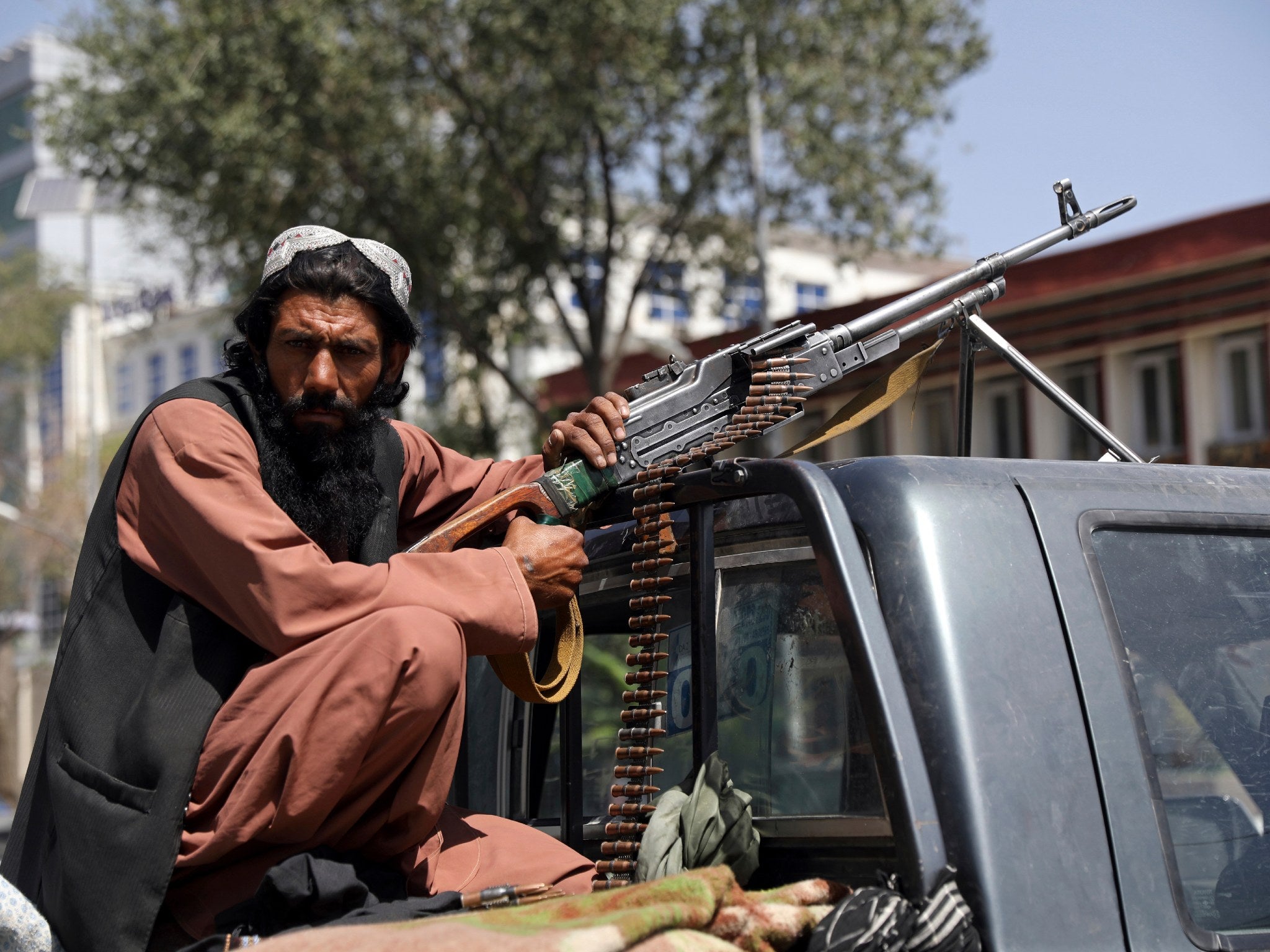The lessons of history have not been learnt over Afghanistan
The lack of a clear exit plan in relation to military action is a mistake that the West can ill-afford to keep making, writes Anthony Seldon


As Afghanistan falls to the Taliban, the finger of blame is being pointed every which way, often by those who abhorred the West’s continuing presence in the country.
Victory for the Taliban was inevitable, as was the withdrawal of Western boots on the ground, sooner or later. It’s pointless to blame President Joe Biden, when Donald Trump and Barack Obama would’ve done the same thing. When it comes to Britain, as in Iraq, so in Afghanistan. We were merely in the slipstream, walk-on players in a far bigger psychodrama.
Those who believe that Britain will be a serious global player post-Brexit have their chance now to prove that, without the shackles of the EU, Britain can punch way beyond its weight. After this past week, the jury remains out.
The West was right to go into Afghanistan after 9/11 in 2001, and wrong to go into Iraq in 2003 – above all with no exit plan. Now the lack of an exit plan in Afghanistan has come home to roost as well. The mistake the West made was not to reach some form of accommodation with the Taliban, to acknowledge them, however abhorrent it finds some of its actions – above all in regard to women.
Where was the exit plan for Afghanistan? On the 10th anniversary of troops going in, in 2011, the questions asked – “how much longer?”, “why?” and “with what result?” were brushed aside.
The solution, now long gone, could have been partition – a time-honoured tactic used with varying success on Ireland, India/Pakistan, Korea and Vietnam. It might not have worked in Afghanistan, but it should have been more seriously sought. It would have allowed a guaranteed home for those Afghans who didn’t want to be ruled by the Taliban, it would have given the West a listening post on terrorist activity in the Taliban-territories, and it would have allowed the families and loved ones of those who lost their lives a more permanent consolation and closure.
No power can remain in a country forever against the will of its inhabitants. Britain did better than some colonial powers like France in quitting its empire before violence broke out and they were forced out. Conservatives, who had resisted independence for the empire in the interwar years, hastened the lowering of the Union Jack across British Africa in the 1950s and early 1960s.
The undervalued Commonwealth is a result, in which the British head of state is consistently more highly regarded than the head of government, ie the prime minister. Most PMs have regarded their attendance at the regular meetings of Commonwealth heads of government as a chore, not to say a bore: let’s see if, post-Brexit, No 10 can wake up to the asset that the Commonwealth potentially always has been.
Does war and violence ever achieve enduring peace? It is a question at the forefront of my mind as I write this article, walking for peace on a 1000km (621-mile) journey from Switzerland back to the English Channel. The walk was the idea of a British junior officer in 1915, AD Gillespie. He imagined a pathway along the line of the Western Front created after hostilities were over, along which he said he wanted every man and woman in western Europe to walk as a reminder of where war leads, “from the silent witnesses“ on both sides. He never lived to see whether his dream would be realised: several weeks later, his name was added to the long lists of dead during the Great War.
For what? The war, while hastening medical, social, political and economic reforms, did not resolve the simmering problems in Western Europe. Up to 20 million died in the conflict, and within 20 years of the war ending in November 1918, European nations were back at each other’s throats in a far bloodier war, that cost some 50 million lives.
Yesterday, I passed by Col de Chipotte, the hill in the eastern Vosges mountains, which changed hands several times between French and German forces from 1914 to 1918. Every village I pass through and every path I walk down on this journey has memorials and cemeteries, studded like stones on a necklace, until I reach Nieuwpoort in Belgium in 30 days time, where the Western Front petered out into the sea.
I am walking through territory fought over many times since the Romans and before, a faultline in human history no less bloody than Afghanistan. Perhaps US academic Stephen Pinker is right, and violent death is on the decrease globally. But human nature has not changed that quickly. The message of Afghanistan, and of the First World War is to commit forces only where absolutely necessary, with objectives based on stated humane principles, and with a clear get-out plan, and a peace settlement that does not lead, as the Versailles peace treaty did after the First World War, to enduring bitterness and hatred.
Sir Anthony Seldon is writing 'Path of Peace', to be published next year, based on his walk






Join our commenting forum
Join thought-provoking conversations, follow other Independent readers and see their replies
Comments